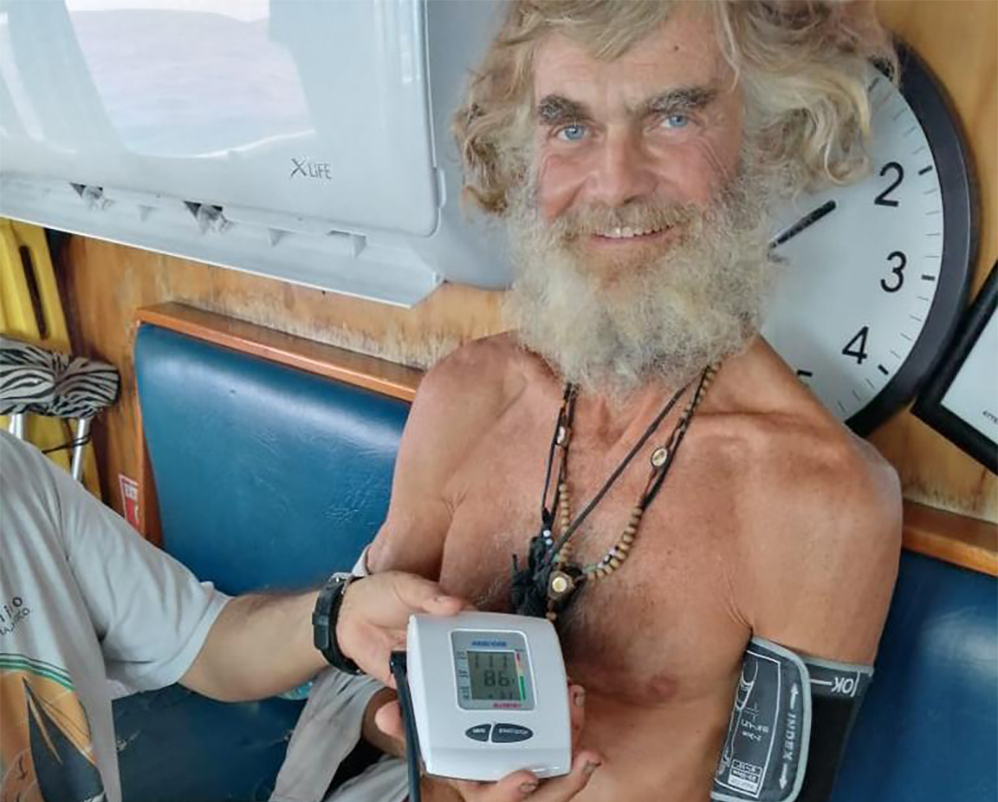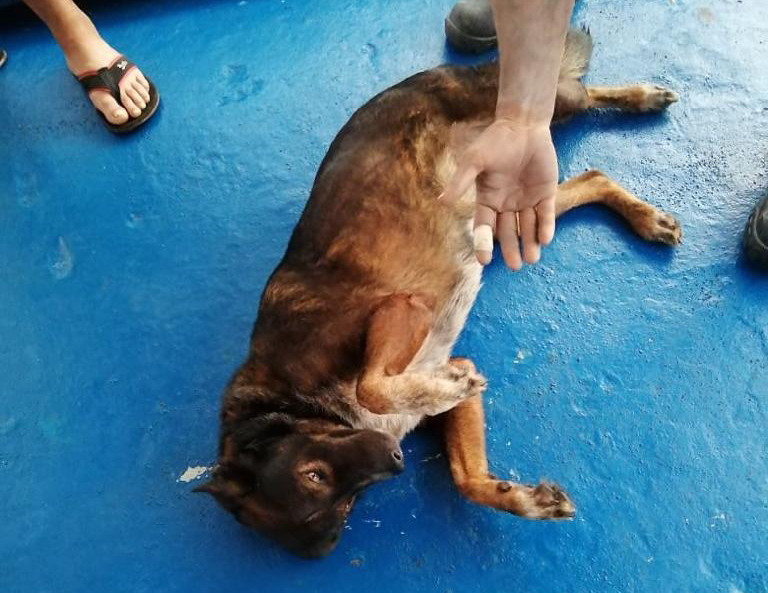Lost at sea for months on a disabled catamaran, with no way to cook and no source of fresh water but the rain, Australian Timothy Shaddock said he expected to die.

There was a lot to like about the experience, he said. Like when he would plunge into the sea for a swim, or when his dog, Bella, would stir him to keep going. “I did enjoy being at sea, I enjoy being out there,” he said. He recalled the full moon in early May that illuminated his turn away from the Baja Peninsula, his last sight of land until he came ashore Tuesday.
Shaddock, 54, smiling and good humoured, was the living image of a castaway, with a long blonde beard and emaciated appearance, as he joked with a group of reporters Tuesday, standing in front of the fishing boat that rescued him at a port on Mexico’s Pacific coast.
He granted that there were “many, many, many bad days,” but declined to elaborate.
Shaddock and his dog left northwest Mexico in a catamaran in late April, he said, planning to sail to French Polynesia. A few weeks into his voyage, he was struck by a storm, which disabled his catamaran and left him with no electronics and no way to cook. He declined to describe the storm or the damage in detail, but images of the boat taken during the rescue showed it with no sail.
He and Bella survived by fishing and eating their catch raw. Rain provided their drinking water.
Sailors, especially those travelling alone, get used to living — and sleeping — in the midst of constant work and whatever challenges the sea throws their way, and Shaddock said he spent most of his time fixing things on the boat. “The fatigue is the hardest part,” he said.
“I would try and find the happiness inside myself, and I found a lot of that alone at sea,” Shaddock said.

Get daily National news
The tuna boat María Delia’s helicopter was the first sign of humans he had seen in three months. He was 1,200 miles from the nearest land when suddenly a helicopter appeared. The pilot tossed him a drink before flying off, and a short while later, the crew reached him in a speed boat.
“It made me feel like I was going to live,” he said.
Part of that encounter with sailors from the María Delia was captured on video. They circle Shaddock’s bobbing catamaran, a flock of white seabirds perched on its double hulls as Shaddock scrambles to his feet in the stern. Bella wags her tail.
A crew member asks Shaddock if he speaks English, if he’s okay, and if he has any drugs or weapons on board. Shaddock initially just hoarsely repeats, “Thank you, thank you.”
But he’s coherent, welcomes them to inspect the boat, and hands over the knife dangling from his neck.
Grupomar, the company that owns the tuna boat, said its crew gave Shaddock and Bella food and medical attention.
Shaddock said the María Delia became his “land” and the crew his family.
He said a lesson he took from the experience was a feeling that “your family is everyone, and your family is all of nature.”
Bella was an immediate hit with the crew. Shaddock said he met the dog in Mexico, and even though he tried to find her a home on land she kept following him back to sea. “She’s a lot braver than I am, that’s for sure,” he said.
Maybe that was why Bella wasn’t allowed to disembark Tuesday until Shaddock had driven away. The Australian had chosen Genaro Rosales, a fisherman from Mazatlan on the María Delia’s crew, to adopt Bella on condition that he took good care of her.
Shaddock planned to return to Australia to spend time with family and friends, but said that he enjoyed solitude. Still, he said, it might be a while before he goes back to sea.
Antonio Suárez, Grupomar’s president, said Tuesday that the voyage during which the María Delia rescued Shaddock may have been its final trip, because he is modernizing the company’s fleet and the boat is its smallest and more than 50 years old.
If so, it would be a “marvelous farewell, saving human lives,” Suárez said.
Shaddock hugged Suárez in gratitude, and Suárez invited him to go for a meal in celebration.
When asked what he would like to eat back on land, Shaddock, smiling and jovial as he slid into a waiting car, said “tuna sushi.”












Comments
Want to discuss? Please read our Commenting Policy first.